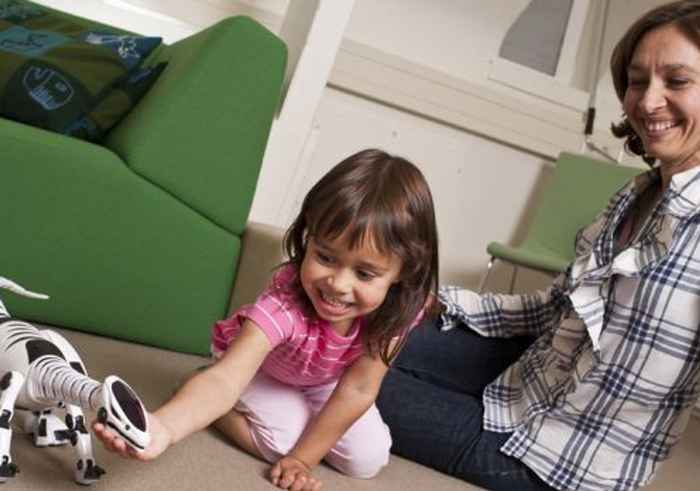Societal Impact
Yield: The Bioecology of Human Development

At Yield we study both typical and atypical development of children in both typical and atypical situations. The societal relevance of Yield research is exemplified in the institutional collaborations of Yield. In order to maximise its relevance, Yield collaborates with UvA minds, Pluryn, NEJA (the network of effective youth care Amsterdam), the Kohnstamm Institute, several municipalities, a number of school boards, Sarphati Amsterdam and various other academic and non-academic partners. Within Yield, we have published multiple intervention and treatment protocol currently used by professionals.
Some examples of societal output and activities are:
Oefenweb
Teachers can track children's progress and adapt their teaching with these training programmes. The data (about 1 million responses per day) collected at 2000 schools are used for scientific research.and associated lectures for professionals. Oefenweb includes Rekentuin, Typetuin, Taalzee, Statistiekfabriek, and Words&Birds.
Publications for professionals
Many training manuals, protocols and books for clinicians and professionals working in education and health care, and books for the general public. Examples of subjects are:
- Psychological problems in children
- Mindfulness
- Addiction
- Cognitive training for addiction and anxiety
- Dyslexia treatment
- Change mindset training for youths with an Intellectual Disability
- Teacher-student relationships, and
- Mindful parenting for parents
Diagnostic instruments
Improvement of diagnostic instruments and treatment in the field of forensic care. For example:
- Development of the ‘National Instrumentation Youth Criminal Justice’
- Policy report about using family networks in youth protection services, that has led to several expert meetings with youth care providers, family guardians, co-ordinators specialized in family group plan approaches, client organisations organized by the Netherlands Youth Institute (Nederlands Jeugdinstituut, NJI) with the aim to search for recommendations for the use of family networks in practice
E-health interventions
Development of several e-health interventions, such as:
- Treatment of insomnia in adolescents (website slimslapen)
- Treatment of various forms of addiction in the ADAPT lab (Addiction Development and Psychopathology Lab). In addition to offering treatment to individuals with psychological problems, these e-health interventions are also used to gather data for scientific research
Media attention
Media attention for research, such as a television documentary broadcasted on Dutch public television about research on medication versus therapy for ADHD treatment in children, and large numbers of articles in newspapers and popular scientific magazines.